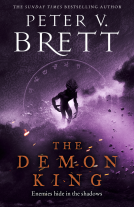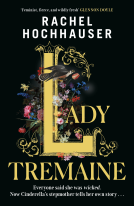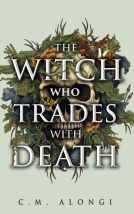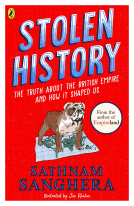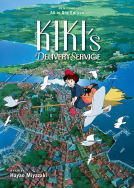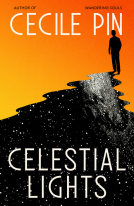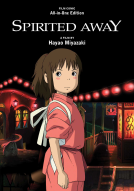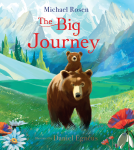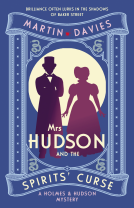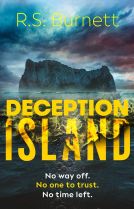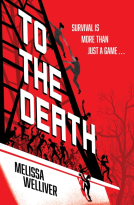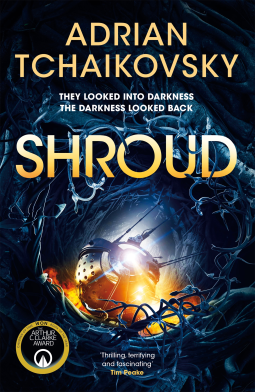
Shroud
by Adrian Tchaikovsky
This title was previously available on NetGalley and is now archived.
Send NetGalley books directly to your Kindle or Kindle app
1
To read on a Kindle or Kindle app, please add kindle@netgalley.com as an approved email address to receive files in your Amazon account. Click here for step-by-step instructions.
2
Also find your Kindle email address within your Amazon account, and enter it here.
Pub Date 27 Feb 2025 | Archive Date 27 Feb 2025
Pan Macmillan | Tor
Talking about this book? Use #Shroud #NetGalley. More hashtag tips!
Description
‘Thrilling, terrifying and fascinating’
– Tim Peake, British ESA astronaut
They looked into darkness. The darkness looked back . . .
An utterly gripping story of survival and first contact on a hostile planet from Adrian Tchaikovsky, author of the Arthur C. Clarke Award-winning Children of Time.
A commercial expedition to a distant star system discovers a pitch-black moon alive with radio activity. Its high-gravity, high-pressure, zero-oxygen environment is deadly to human life, but ripe for exploitation. They named it Shroud.
Under no circumstances can a human survive Shroud’s inhospitable surface – but a catastrophic accident forces Juna Ceelander and Mai Ste Etienne to make an emergency landing in a barely adequate escape vehicle. Alone, and fighting for survival, the two women embark on a gruelling journey across land, sea and air in search of salvation.
But as they travel, Juna and Mai begin to understand Shroud’s unnerving alien species. It also begins to understand them. If they escape Shroud, they’ll somehow have to explain the impossible and translate the incredible. That is, if they make it back at all . . .
* * *
Praise for Shroud
‘Clever, vivid and terrifying . . . No one has an imagination like Adrian Tchaikovsky’ – Jim Al-Khalili, presenter of BBC Radio 4’s The Life Scientific
‘Crunchy, conceptual SF at its best’ – Richard Morgan, author of Altered Carbon
‘This is hard-edged science fiction that never loses its soul’ – Sue Burke, author of Semiosis
‘Makes Andy Weir's vision of Mars in The Martian look like a Caribbean beach resort’ – The Fantasy Hive
Available Editions
| EDITION | Other Format |
| ISBN | 9781035013791 |
| PRICE | £22.00 (GBP) |
| PAGES | 448 |
Available on NetGalley
Average rating from 97 members
Featured Reviews
 Paul S, Reviewer
Paul S, Reviewer
I would probably read anything Adrian wrote including his latest shopping list because I’m pretty sure it would be better than most books in the current top 10!
I’m not going to bore people who can be bothered to even read my review by recanting the story, it’s very good! Read it !!
It's simply not possible to read Mr Tchaikovsky's stories quickly! His work is always so rich with details and descriptions that you can create a 'movie' in your mind of the words you're reading. Shroud is superb. There's the Special Projects team as they try to decipher Shroud's secrets from their little space station, the sinister aspect of Shroud itself, the unfortunate accident that strands members of the team on Shroud's surface, and how they felt when they realised just how little they actually knew about Shroud's 'inhabitants' from their observations from space. The story is simply mind-boggling! And the ending ... just wow!
Thanks to Netgalley, Pan Macmillan, and Adrian Tchaikovsky for a free ARC in exchange for an honest review
I really enjoyed this book. It was entertaining and it kept you guessing. There was enough peril to keep it interesting without it being too much to make it so you didn't want to go on. I liked the characters of Mai and Juna. I liked that they both had mental breaks because who wouldn't in their position? I found the science believable but not too complex even if I did have to look up quite a few words. I liked that the aliens weren't even remotely like humans. I believe that the exploitation of worlds is exactly what would happen if we ever got that technology. I give it 4.5 stars.
 Reviewer 438208
Reviewer 438208
Really enjoyed the world building and setting. Hopeful that this will be continued in future books as would like to know what happens to the characters.
Pacing was great and the different POV’s kept it engaging.
Scientific terminology was quite heavy but to be expected from Adrian Tchaikovsky.
A dark, crushing world inhabited by strange creatures and with resources that humans can plunder. Until two humans find themselves stranded, at the mercy of those primitive aliens.
This is an enthralling story, full of claustrophobic scenes, set on a world that is toxic to humans, but where the locals have developed a way to survive, and thrive.
I've loved every book I've read by this author, and this one was exceptional. The world building and the creativity that went into the different creatures on Shroud is phenomenal, and the human interactions are, unfortunately, just what you would expect. A must read for anyone who loves sci-fi, and for Adrian Tchaikovsky fans! Highly recommend.
 andy d, Reviewer
andy d, Reviewer
Excellent, both a tightly written science fiction thriller and a parable of "mastery of the universe"
 Aidan C, Reviewer
Aidan C, Reviewer
Weirder, more compelling, and a lot more fun than it has any right to be, Shroud picks up scraps and threads from other Tchaikovsky novels — just-so evolutionary sagas, pitch-black hydrocarbon exoplanets, very human awfulness — and reweaves them into a surprisingly taut and fresh adventure. One of his better one offs, which is a high bar to clear when you’re in a deep-sea bathysphere and crushing gravity.
———————
On the surface Shroud is arguably a bit of a throwback, following two castaways struggling to survive treacherous landscapes, freezing oceans, and alien monsters as they struggle back to (our) civilisation. It’s a plot that could have come straight out of 1950s sci fi and the American-pioneers-in-space canon, but one of Shroud’s great pleasures is how gleefully Tchaikovsky inverts the elements of his premise; instead of Heinleinian freemen, our space pioneers are two women stuck in corporate peonage, their ingenuity is largely bumbling about while the locals do the actual surviving, and all the derring-do happens while our heroes are prone in acceleration couches cranked up on improbably large doses of pharmaceuticals.
And somehow, despite the obvious potential for a fatal tonal clash, Shroud feels incredibly natural. A lot of the credit here has to go to Tchaikovsky’s mastery of incident and adventure-story plotting, which keeps things moving at a brisk clip with fresh perils while still tipping the hat to the drudgery of trying to cross half a planet inside a jazzed-up diving bell. It certainly helps that Tchaikovsky has outdone himself in imagining a truly alien ecosystem, logically drawing out how a lightless, crushing world might plausibly produce life very that is much not as we know it (and yet somehow also yielding excellent critters for driving a survival story forward).
The action off of Shroud is a bit less seamless, with the other human corporates being (usually) a bit too moustache-twirling and their local opposition a smidgen too all-capable for my taste, even if there is some nuance. But as the final twist of the plot makes clear, the actual heart of the story is firmly back on the ground, with inventive alien life rubbing shoulders with humans putting one robotic leg in front of another, again and again and again.
 Rina I, Reviewer
Rina I, Reviewer
I honestly don't know how Adrian Tchaikovsky does it. Book after book, one better than another, and not a single one that I didn't like. This one is probably my favourite out of all his works after the whole Children of Time series, because it's also concept-driven rather than character or plot-driven, and this is my jam as far as sci fi goes.
It's hard to describe the plot of the book without going into spoilers, so let's keep things vague here. A group of explorers is tasked to research a strange moon with intensely dense atmosphere that is also entirely saturated by radio waves produces by strange forms of lives there; things don't go according to plan (obviously). The rest is best left unknown until the reader actually gets through the book but I absolutely guarantee that anyone who loved Children of Time and its sequels would love this book as well.
This is a book about humanity. What it is, what it means, how it's expressed, and how it affects us. It's also a damned fine sci-fi adventure yarn.
Told through two mostly alternating points of view, one human, one alien, the narrative follows a human resource-stripping mission sent out ahead of the greater human diaspora to find and grab all the resources they can, and where applicable establish waystations for future humans to use and colonise. Along the way they discover Shroud, a tidally-locked moon of a gas giant, where the atmosphere is so thick that at the surface there is nothing but darkness. Well, darkness, and life. And when disaster strikes and two of the humans, Juna and Mai, get caught on the surface with nothing but their tiny pod to keep them alive, that life begins to take an interest in them.
As I mentioned at the top of this review, this book is about what it means to be human, and while the humans in this book are recognisably us, they're a version of us that's become consumed by corporate excess, absorbed into the gestalt that is the corporation machine, commodified, and ultimately dehumanised by the world they live in and the society they belong to. Spending most of their time in sleep pods, 'shelved', as it's referred to, the main human characters are consigned to an existence in which they're nothing more than interchangeable parts in the greater organism that is the corporation, which in turn is the ship and its mission.
The alien life of Shroud, on the other hand, is a gestalt that has fractured, a hive mind that can only maintain its memories and reason by staying close to its constituent parts. And should one or more of those parts get separated from the whole, a new colony is formed, a new mind begins.
Just like the uplifted species Tchaikovsky gives us in his <i>Children of Time</i> series, the aliens here are ridiculously well written, and genuinely feel alien. But then again, so do the humans to some degree. At one point Juna, the human narrator of the story, compares the Shrouders to ants, but clearly doesn't see that the same comparison could be made of the humans themselves.
As with pretty much all of Tchaikovsky's high-concept sci-fi, the writing here is a seamless blend of technical exposition and character-driven exploration. The growing sense of despair and defeat felt by the human narrator is perfectly captured throughout the developing story, and the sense of wonder and enlightenment that fills the Shrouders as they learn more about the strange creatures that have invaded their world is just as palpable.
There are a lot of moments throughout this book where I wanted to slap one or more of the human characters, but it's the ending that ultimately got to me. The final wrap-up, and the way in which everything is brought full circle, almost had me throwing my kindle across the room in frustration. But in a good way. Even now, a week and a half after finishing it, that ending still sticks with me, and that, above all else, is why I love this book.
Definitely a strong and well-earned five-stars, and definitely one I'd recommend you read.
 Pernille B, Reviewer
Pernille B, Reviewer
Far in the future human greed forced humanity to leave Earth after stripping it of all resources. To make sure humankind survives no matter the cost, humans have taken to stripping planets and moons for materials. This is the starting point of Shroud.
Our FMC, Juna Ceelander, and Mai Ste Etienne end up stranded on Shroud, a moon void of illumination, after a disaster that destroyed their spaceship. Following them through the story, and their struggles really show what we can overcome against overwhelming odds.
Adrian skillfully spins a tale that explore what the future could be if we keep exploiting Earth, and what could happen if we meet intelligent life that evolved in darkness.
There's so much I want to express but I'm speechless.
If you have already read Alien Clay know that despite it also being humankind meeting another lifeform on an alien planet, it is nothing like it. That Adrian Tchaikovsky can spin another sci-fi tale this detailed and yet so distinct is mind-blowing. If you haven't read either I encourage you do it ASAP.
I recommend this book to every sci-fi reader/enthusiast. It is very heavy on the sci-fi jargon, so it can be a bit difficult getting into if the reader is not well-versed in it. It might be tough, but it's damn well worth it!
5 well-deserved stars
I am grateful to the kind people at Pan Macmillan for providing an advance copy of this book via NetGalley in exchange for my honest review.
‘Shroud’ is a new novel by the author Adrian Tchaikovsky. It is a stand-alone novel, so there is no need to have read any of Mr Tchaikovsky’s previous books to enjoy this one. Although I highly recommend you do ! I thoroughly enjoyed ‘Shroud’; taking my time to read it slowly, prolonging the pleasure.
The book is set sometime in the future and begins with a prologue. A young woman, Juna, recently brought out of the deep induced-sleep of space travel, survives an accident in a space craft orbiting an apparently lifeless Moon, named Shroud, far from Earth. She has been expelled to ‘safety’ in a small escape module. She thinks to herself:
“I’m not supposed to be here. Not in this thing. Not down here…on Shroud.”
The early chapters backtrack in time, providing context and introducing some of the characters. The Earth is largely uninhabitable due to conflicts. A Corporation, the Concern, has replaced Governments, with a mission to populate and exploit far reaches of the Solar System. Earth’s inhabitants, those who have survived and are ‘fortunate’ enough to be of some use to the Concern, take part in these missions. Until they are no longer required. Juna, an endearing and optimistic young woman, works for the Concern and is the main narrator in this book.
She is part of a team, that was orbiting a Moon named Shroud, in an area of dead, lifeless planets. We learn a little about the Juna’s team. The dynamics and relationships. Juna is the glue that holds the team together. Shroud has been approved for exploration and mineral exploitation. Before the accident she reflects on her lifestyle, perhaps with a little sarcasm and a lot of reality:
“We were all properly grateful…We were lucky enough to live…”
Juna is a clever and likeable; someone with whom the reader will identify and enjoy. Despite her position in life as a low-level employee, she is full of spirit, funny, sometimes sarcastic. But also a realist, eager to survive, competent, doing her job to the best of her abilities, knowing full well that there are far worse alternatives than being an Assistant working for the Concern, evaluating, exploiting and inhabiting distant and sometimes dangerous Solar Systems.
Shroud has an extremely harsh and brutal environment. Cold and barren with a toxic atmosphere. And completely dark, always in the shadow of a nearby planet. Although unsuitable for life of any sort, initial analysis by the Concern team suggests it is a candidate for exploitation using robots, robotic equipment and drones. Juna and her colleagues do not intend to go anywhere near the surface of Shroud ! They are given the task of investigating some unexpected signals and radio-noise, essentially static, emanating from Shroud. Drones are sent to investigate, data, including some video recordings are evaluated and suggest some sort of life may exist. Flora or perhaps fauna may be the source of the signals. Then the accident happens. Juna and a couple of her team end up on Shroud. Alive but stranded. This book tells the story of their journey on Shroud, to escape to the safety of orbit, if indeed there is anyone up there to rescue them.
On Shroud, they have some resources for living, some mobility in their escape vehicle, but hardly any means of communications or defence. They encounter up-close, the source of the signals and noise they picked-up while orbiting and observed from the drone recordings. It is not too much of a plot-spoiler to mention that Shroud has inhabitants. After some encounters and unfortunate incidents, Juna muses to herself:
“…we could only try to understand them, as perhaps they were trying to understand us…”
The scene is thus set for a wonderful story of engaging characters and otherworldly incidents as Juna and what remains of her team, attempt to return to the relative safety of orbiting Shroud.
Mr Tchaikovsky builds his characters slowly, letting us come to know them better from their lived-experiences, their role in the Concern and for the unfortunates on Shroud, how they act under pressure. Juna and another young colleague, Mai, are both particularly endearing. They are brave, capable and tenacious while honestly accepting their chance of rescue is a small number, just shy of zero. Given their dangerous environment and threatening circumstances they somehow retain their humanity, their morality and also their humour. Quite something in a completely dark world, the environment only slightly illuminated by their vehicles with very limited lighting. Mr Tchaikovsky builds the atmosphere partially from what they see, but largely from what is unseen; often sensed or imagined. The quite frankly, horrific situations, are tempered by humour, sarcasm, human warmth as well as a strong desire to survive. The dialogue and thoughts often made me smile and occasionally chuckle aloud.
A close relationships develops between Juno and Mai as they share this adversity. A more complex, less well-defined relationship develops between them and the entity they encounter on Shroud. Reflecting on these events and outcomes, Juna thinks to herself:
“…just because they were sapient, didn’t mean they were nice.”
And a little later, some light-hearted pragmatism:
“Scientific curiosity is all very well but it doesn’t make you immortal…”
Although Juna is the primary narrator of the book, an alternative narration periodically comes from the entity they have encountered on Shroud. This is a fascinating aspect of the book and allows Mr Tchaikovsky to portray human-like characteristics in a non-human mind. A completely different way of sensory perception, learning, data retention and decision processing. There are less technical, more social aspects as well. Themes such as curiosity, memory, nurturing and self-sacrifice are explored from a unique perspective.
Both the Shroud entity and the human visitors view the other as strangers, from somewhere else. Aliens. Both wonder, at first, if the other is even sapient life, or perhaps some sort of low-level life-form, only capable of reflexive or echoing behaviour. The dynamics of the relationship forms almost a parallel plot, as Juna and Mai endeavour to survive and attempt somehow to leave Shroud. Mr Tchaikovsky explores various aspects of this First Contact. Themes such as communication, comprehension, learning, trust, benevolence and evolution are explored.
I loved this book. The horror is balanced by the humour and warmth displayed by the main characters and occasionally by the ‘kindness of strangers’. Various ‘human’ characteristics such as bravery, curiosity, understanding and tolerance are exhibited by many, but not all, of the participants in the story. The concept of First-Contact with a non-human Lifeform in such a brutal environment has stayed with me well after I have finished reading. One wonders if Mr Tchaikovsky will revisit Shroud again in another book. I’d love to know ‘what comes next’. But if not, this book is quite sufficient. A thought-provoking and very satisfying read. The plot is well developed, with twists and turns. Dryly funny in places. Endearing and credible characters are found throughout. Some ragbags as well ! And the ending is fulfilling, surprising and I think, ultimately uplifting. Although the reader is left wondering and hoping that the future for Juna and Mai, these sometimes lonely, probably damaged characters, is somewhat kinder than their past. A Great Read and a wonderful addition to Mr Tchaikovsky’s body of work. I wish him all the very best with the publication.
"Let me put this into words you can understand."
Let's not bury the lede here. This is one of the best books I've read this year, and if a better SF novel is published in 2025 we're in for a good time. I can't remember the last time I was this impressed - or this moved - by a sci-fi book.
The best first contact stories invariably have something to say about what it means to be human. Putting us next to another sapient species means we inevitably begin to draw comparisons. How do we define "alien" if not by pointing at it and saying "not human"? In defining what makes something alien we inevitably are forced to reckon with what makes us human.
Shroud puts humanity on full display, peeling us apart piece by piece and looking at the resulting mess. It's a novel of both the best parts of human nature - ingenuity, curiosity, empathy, resilience - and the worst - violence, the endless cycle of colonisation and extraction, the reduction of people to little more than cogs in a machine. The arrogance to think that we're uniquely special.
Tchaikovsky's writing here is, I think, the best in his career. I've never read a book of his that I didn't at least enjoy, but in the past - specifically in the Shadows Of The Apt series - I've sometimes got a bit lost in his action scenes and the way he describes "weird" things. Shadows... was over a decade ago, though (The Empire In Black And Gold, terrifyingly, 16 years ago), and he's had plenty of time to improve his craft. Shroud is the evidence that he's put the work in. The frozen moon of Shroud is a truly weird, alien place, populated by some of the strangest aliens I've ever seen in fiction, but the prose is crystal clear. I can picture this world, and the awful things that happen to our main characters during their journey across it, like I was right there with them. The pacing, too, is great. This rattles along like the best of thrillers. There isn't a single wasted moment here. It's a proper gripping page turner, evidenced by the fact that I write this after having stayed up until 2AM against all my better judgement to finish reading it.
Over the past few years I've been really drawn to moody sci-fi horror. In 2020 I wrote The Wretched, a solo journalling game about being really stressed and having a terrible time on your own in space. Some of my favourite SF of recent years has had very similar themes. The Wretched was absolutely a response to the unique isolation of COVID lockdowns, and I suspect that's also true of much of the fiction along similar lines that's emerged since then.
Shroud is also a novel about having a terrible time in space, but it's specifically a novel about having a terrible time in space and leaning on shared bonds and our connections with other humans to help us endure and survive. Even in its most bleak moments, even when our worst impulses as a species are on display, it's still a novel that has some hope for the future. As I was reading it I couldn't help feeling like it feels like a novel about healing and rebuilding. As with a lot of recent SF I think this is a book that was forged in the aftermath of lockdowns, but it's a book that's able to imagine a coming together of people in the aftermath of catastrophe rather than one that wallows in isolation.
Shroud is released in February 2025, and I can't recommend it highly enough. I'm very grateful to Tor and Pan Macmillan for furnishing me with an ARC. Don't sleep on this on when it lands.
 Reviewer 1405120
Reviewer 1405120
Wow, what a story!
Thank you to NetGalley and Pan MacMillan for this arc!
I’m not quite sure where to start with this one. I knew of Adrian Tchaikovsky (and had met him at a convention) but I’d never tried any of his work before this one and now I’ve got to read more.
I’ve never had quite the same mixture of emotions reading anything else: anxiety yet fascination and curiosity. The start of this felt very much like a kind of space-horror and, though this shifted somewhat, the sense of existential dread never really left the story and I loved that. And in contrast to this vastness and alien atmosphere was the really emotive and touching human story centring around the two protagonists. I really liked the characterisation in this. It was understated and natural and I felt like I really understood each character. Tchaikovsky was just so good at slowly building our understanding of them and letting their relationship grow organically. They were human and flawed and I really wanted to give some of them a hug.
The non-human characters were also brilliantly done. A masterclass on “show don’t tell” which some of my recent reads have been a little lacking in. They felt truly alien and there were just some excellent moments where I just went “OH”, quickly followed by “oh no.” I see a lot of people say they dislike first person perspectives, but it was clearly consciously used here and it was really effective.
The world building similarly felt very understated. It was a background to this story but it was really clever and horribly believable! The start of the book felt a little bit bogged down with some of the initial “setting the scene” but it was really well integrated for the rest.
This was overall a brilliant, emotive and often powerful exploration of humanity and connection, even between beings that have so little in common on the surface. Please keep an eye out for this if you’re in any way a fan of sci-fi or stories exploring alien perspectives. My only complaint is that I want to know what happens next! I suspect this will be a stand-alone but I really want to return to the world of Shroud in the future.
 Mark H, Reviewer
Mark H, Reviewer
I have to salute Adrian Tchaikovsky’s imagination, the more I read of his greater catalogue of written works the more I am in awe of his ability to transport the reader into a realm of the fantastical.
Shroud is no exception to this as we follow the journey of two unlikely hero’s, attempting the improbable while facing the seemingly impossible odds of an alien world, filled with an entity unlike any reasonable mind could create. Yet Adrian Tchaikovsky fulfils his own brief in such an imaginable & creative way, that once you start reading it’s hard to stop.
As first contact stories go this is by far the most imaginative I have read so far, dividing the narrative and therefore the perspective of both the ‘Protagonists’ & the ‘Shrouded’ themselves. This unique framing is a refreshing take on the first contact genre, offering the reader a vision of the world of Shroud that perhaps could not have so easily been depicted otherwise.
I cannot urge you enough to pick up a copy of this book upon its release in February ‘25. You will not be disappointed, Adrian Tchaikovsky has once again proved he is a master at what he does best.
Thank you to #Tor books #PanMacmillan & to #NetGalley for allowing me the utmost privilege an honour of this eARC copy of ‘Shroud’ to read & review.
The comments & opinions above are solely my own & are reflective of my experience reading this amazing book.
 Autumn K, Reviewer
Autumn K, Reviewer
I always start a Tchaikovsky book expecting to love it, and invariably become surprised when it exceeds my already high expectations.
It's classic. If you liked his Children of Time series (especially Book 2), this is right in your wheelhouse. It also has some 60s sci fi vibes a la world exploration, with a modern twist.
I loved the characters, the setting, the plot points, the ending. Never stop writing, Tchaikovsky. Please.
## Ratings
Cover: ⭐⭐⭐⭐
Initial Draw: ⭐⭐⭐⭐⭐
Characters: ⭐⭐⭐⭐⭐
Pacing: ⭐⭐⭐⭐⭐
Finish Line Feeling: ⭐⭐⭐⭐⭐
## Review
Tchaikovsky is undoubtedly one of the premier authors when it comes to writing from the perspective of different species/cultures. The world he developed in Shroud was just as strong as Children of Time, with similar plot beats and pacing but a completely new species and new hostile environment to live through and contemplate. The way Tchaikovsky writes from the perspective of non-human characters makes you realise how anthropomorphized most sci-fi species are and is a breath of fresh air when it comes to thinking about what could be out there.
I was on the edge of my seat the entire time - not because I didn't expect the ending; but, because the pacing was completely on point, always tempting you to know what happens next at every page and every chapter.
I don't really want to go into finer plot points any more because you should definitely just experience it for yourself. Overall if you enjoyed Children of Time or Tchaikovsky's other works relating to alternate species then you will love this one. I can't wait for the sequels to explore this world and species more.
This will be a review of many superlatives, as I think this is possibly Tchaikovsky’s darkest and weirdest novel yet! It’s also my favourite book of his since Children of Time.
The atmosphere in Shroud is simply phenomenal, and the sense of threat the protagonists face feels very real and ever present. You don’t often get a full picture of what their adversaries look like on the surface, as our protagonists can’t see far into the blackness themselves. It strikes me this book would make an excellent blockbuster film, if it weren’t for the fact that most of it would be in pitch black! The world created in Shroud is unfathomably weird and creepy, and yet the ecology kind of makes sense for the world he’s created. Things aren’t bizarre for the sake of it, there’s a logic to how things join together that, although completely alien, makes the story more realistic and believable.
The story of Shroud reminded me of Andy Weir books such as The Martian and Project Hail Mary for the practical survival elements in a hostile environment, but an extra dollop of danger and existential dread. The duo of Juna and Mai are forced to be resourceful with the limited materials they have aboard their vehicle, to achieve the possible and find a way home. The story presents us with a great two-way first contact scenario, as the lead characters try to make sense of the hostile world around them, whilst the hostile world tries to suss them out in return.
Shroud ticked all the boxes for what makes Science Fiction great for me - evocative and thought-provoking world building, an examination of human nature in response to new experiences and threats, and a story that didn’t go the way I first expected.
This book got off to a slow start for me, and there were points where I wasn't sure I was going to finish it. But, I'm so glad I pushed through as this book only got better and better.
The relationship between Mai and Juna was a really bright point in this novel, and I especially enjoyed Mai's halting attempts at praising Juna for her overall uselessness!
The switching of perspective between light and dark was brilliant, and slowly revealed more and more about how complex Shroud is, and how interconnected the world is.
The final lines of this book are so strong, and was such a strong ending to a really compelling novel. Juna is a hero, no matter what remedial works might suggest.
 Reviewer 1459316
Reviewer 1459316
A brilliant first-contact sci-fi!
Suspenseful and exciting moody sci-fi ,while being an exploration of humanity through the characters.
Loved this book, I’d read anything by Adrian Tchaikovsky and this one is great!
This is my first book of Adrian’s and it definitely won’t be the last! I loved that it was not only sci fi but horror too, it kept me on my toes and turning the page late into the night. I’m a new sci fi reader and it was very accessible and easy to understand. The world building and the characters were great. It was dense at times but loved every minute of it.
Readers who liked this book also liked:
Created by Hayao Miyazaki
Comics & Graphic Novels, Sci Fi & Fantasy
Studio Ghibli Library
Arts & Photography, Comics & Graphic Novels
